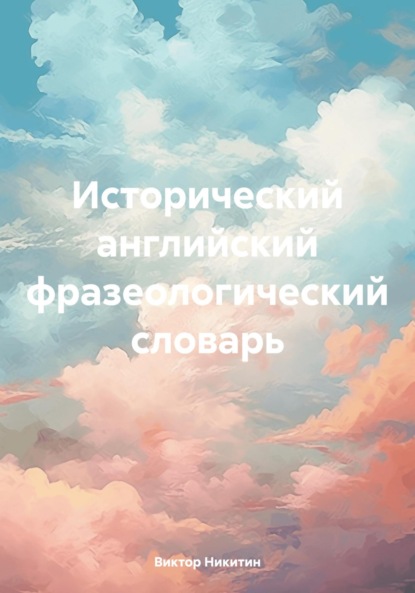По всем вопросам обращайтесь на: info@litportal.ru
(©) 2003-2024.
✖
Исторический английский фразеологический словарь
Настройки чтения
Размер шрифта
Высота строк
Поля
Eye-opener. An American drink of mixed spirits as a remedy for drowsiness.
93
F
Face the Music. To bear the jeers and taunts of those who laugh at us.
Factory King. Richard Oastler of Bradford, the promoter of the “Ten Hours’ Bill.”
Fag. Slang for a cigarette, derived from the fag end–i.e. fatigued or spent end–of a cigar. Also a small boy who acts as a drudge in the service of another at a public school, so called from the Anglo-Saxon f?ge, weak, timid.
Fair Cop. Thieves’ slang for a smart capture by the police. Whereas another would say “The game’s up!” a thief admits that he has been fairly caught by the expression “It’s a fair cop.” See “Cop.”
Fair Maid of Kent. Joan, the beautiful and only daughter of the Earl of Kent, who became the wife of Edward the Black Prince.
Fair Street. A name left us as a reminder of a once celebrated fair on the Southwark bank of the Thames.
Faith Healers. A sect which upholds the doctrine of healing the sick by prayer and anointing with oil in the name of the Lord, as set forth in James v. 13-15.
Faix. An Irishman’s exclamation for “Faith” or “In Faith.”
Fake. To make-believe or cheat. An actor is said to “fake up” an article of costume out of very sorry materials, which at a distance looks like the real thing. A photographer can “fake” a spirit photo by means of two distinct plates. Food also is largely “faked.” The word is derived from “Fakir.”
Fakir. From the Arabic fakhar, poor.
Falcon Square. From an ancient hostelry, “The Castle and Falcon,” hard by in Aldersgate Street.
Falernian. A celebrated wine, extolled by Horace, Virgil, 94and other Latin authors, prepared from grapes grown in the district of Falernicum.
Fall. An Americanism for autumn, in allusion to the fall of the leaves.
Fallopian Tubes. Said to have been discovered by Gabriel Fallopius, the eminent Italian anatomist of the sixteenth century. They were, however, known to the ancients.
Falls City. Louisville, in the state of Kentucky, because it overlooks the falls of the Ohio River.
Falmouth. A seaport at the mouth of the Fale.
Family Circle. This expression had a literal meaning in the time of the Normans, when the fire occupied the centre of the floor, and the smoke found its vent through a hole in the roof. In Germany and Russia the domestic apartments are economically warmed by an enclosed stove in the centre. Amongst ourselves the phrase “sit round the fire” only conveys a half-truth.
Fancy Drink. An Americanism for a concoction of various spirits, as distinguished from a Straight Drink of one kind.
Fandago. Spanish for a “lively dance.”
Farmer George. George III., on account of his dress, manners, and bucolic sporting inclinations.
Farm Street. From an old farm, on the land of Lord Berkeley of Stratton in the time of Charles I.
Faro. So called from a representation of Pharaoh on one of the cards originally.
Farringdon Road. After William Farringdon, citizen and goldsmith, who, for the sum of twenty marks, in 1279 purchased the Aldermanry of the ward named after him.
Farthing. From the Anglo-Saxon feorthling, a little fourth. In olden times penny pieces were nicked across like a 95Good Friday bun; so they could be broken into halves and fourths as occasion required.
Farthingale. A corruption of Verdingale, from the French vertugarde, a guard for modesty. Queen Elizabeth is said to have introduced this hooped petticoat in order to disguise her figure.
Farthing Poet. The sobriquet of Richard Horne, who published his chief poem, “Orion,” at one farthing, so that it should not want for buyers.
Fastern’s E’en. The Scottish description of Shrove Tuesday, being the eve of the Lenten Fast.
Father of Believers. Mohammed, because he established and promulgated the faith of the Moslem, or “true believers.”
Father of the Music Halls. The late William Morton, manager of the Palace Theatre of Varieties, and founder of the earliest London Music Hall, “The Canterbury,” in the Westminster Bridge Road, which dates from the year 1848.
Fathers of the Church. The great doctors or theological writers of the period from the first to the seventh centuries of Christianity. See “Apostolic Fathers.”
Faugh-a-Ballagh Boys. The 87th Foot, from their battle cry.
Feast of Lanterns. A Chinese festival which occurs on the fifteenth day of the first moon of the year. Walking by the side of a beautiful lake one night the daughter of a mandarin fell in, and was drowned. When her father heard of the accident he, attended by all his household, carrying lanterns, rushed to the spot. On the anniversary he caused fires to be lighted beside the lake, and invited all the people of the country round about to offer up prayers for the safety of her soul. In course of time the solemn character of the gathering was forgotten, and the day has ever since been observed as a national holiday.
Вы ознакомились с фрагментом книги.
Приобретайте полный текст книги у нашего партнера:
Приобретайте полный текст книги у нашего партнера:











